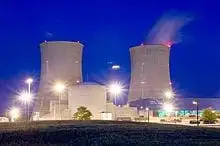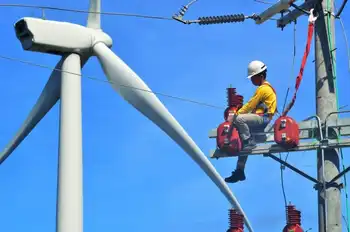Russia poised to ship nuclear fuel to Iran
BUSHEHR, IRAN - Inspectors from the UN nuclear watchdog agency arrived at a Russian facility to check the uranium fuel it has produced for Iran's first nuclear power plant, officials said.
The International Atomic Energy Agency's experts will certify and seal fuel intended for the power station Russia is building in the Iranian port of Bushehr, said Sergei Guryanov, a spokesman for the Novosibirsk Chemical Concentrate Plant in Siberia. The plant is Russia's main manufacturer of fuel for nuclear power plants.
Guryanov said a date to deliver the fuel - needed for the long-delayed plant to begin operating - has not been set.
During his trip to Iran last month, President Vladimir Putin promised that Russia would complete the Bushehr plant, first planned more than a decade ago, but refused to say when it could begin operations. He said a decision on shipping fuel for Bushehr would be made once Russian and Iranian experts agree on revisions to the contract.
Russia has warned that the plant would not be powered up this fall, as previously planned, because Iran has been slow in making payments. Iranian officials have angrily denied any arrears. They accuse the Kremlin of caving in to pressure from Western countries that accuse Teheran of using its power program as a cover for efforts to develop atomic weapons.
Moscow has ignored Iranian demands to ship fuel, saying it would be delivered only six months before the Bushehr plant goes on line. The launch date has been delayed indefinitely amid the payment dispute.
Putin's careful stance suggests he is seeking to preserve ties with Teheran without angering the West. Putin said he does not see evidence that Iran is seeking to develop nuclear weapons, as the United States and its allies contend.
Moscow has said it doesn't want a nuclear-armed Iran, and has urged Teheran to freeze uranium enrichment and answer international inspectors' questions about its nuclear program.
Russia and China, another important ally of Iran, grudgingly approved two sets of limited sanctions against Iran over its refusal to suspend enrichment. But the Kremlin has bristled at the US push for tougher measures, saying they would only escalate the rift.
Foreign Minister Sergey Lavrov accused the United States of playing a double game on Iran. In a recent interview in the weekly Itogi, he said that U.S. officials stress their commitment to collective, peaceful efforts, but that "unilateral sanctions are imposed against Iran and third countries, including Russia, and announcements that the 'force option' remains on the table are strengthened."
Related News

Nuclear plant workers cite lack of precautions around virus
HARTFORD - Workers at Connecticut's only nuclear power plant worry that managers are not taking enough precautions against the coronavirus after 750 temporary employees were brought in to help refuel one of the two active reactors.
Ten employees at the Millstone Power Station in Waterford have tested positive for the virus, and the arrival of the temporary workers alarms some of the permanent employees, The Day newspaper reported Sunday.
"Speaking specifically for the guard force, there's a lot of frustration, there's a lot of concern, and I would say there's anger," said Millstone security officer Jim Foley.
Foley, vice president of the local…




